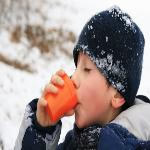题目内容
单句改错(10分)
以下10个句子,每个句中只有一处错误。每处错误仅涉及一个单词的增加、删除或修改。
1.If convenience, we’ll come tomorrow.
2.Although these cities are not as large as that in China, they have world-famous
football teams.
3.Though lack money, his parents managed to send him to school.
4.When you copy the letter, pay attention to not leaving alone any words.
5.They live in the farmhouse, in front of which stands two bread trees.
6.Having been told many times, but he still couldn’t understand it.
7.Karan rented a furnished flat and had it paint pink for the coming Christmas.
8.He keeps him informed of what is happening outside through the Internet.
9.If you make promises lightly, you’ll find yourself in the dilemma.
10.The girl who seems to be easy to get along is easy to get angry actually.
 品学双优卷系列答案
品学双优卷系列答案 小学期末冲刺100分系列答案
小学期末冲刺100分系列答案 期末复习检测系列答案
期末复习检测系列答案 超能学典单元期中期末专题冲刺100分系列答案
超能学典单元期中期末专题冲刺100分系列答案 黄冈360度定制密卷系列答案
黄冈360度定制密卷系列答案

